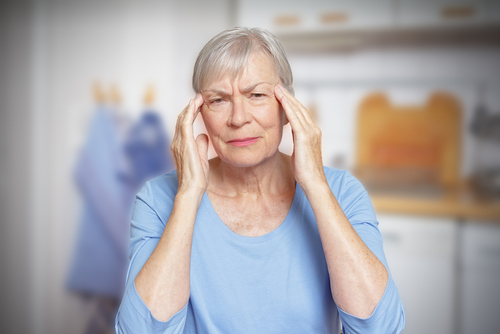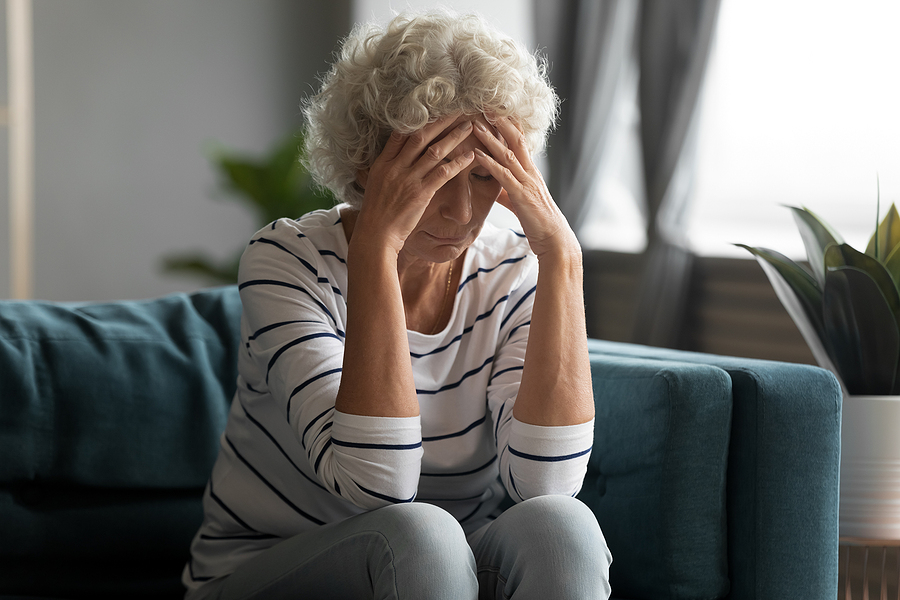What Causes Brain Fog in the Elderly?
Category:

Have you ever walked into the kitchen but couldn’t remember why? Do you find yourself forgetting how to complete familiar or mundane tasks?
How about conversations? Can you follow what’s being said and remember it an hour later? Have you walked out to a parking lot and failed to remember where you parked?
Have you been talking with someone and forgotten what you were saying or lost your train of thought?
If these occurrences sound familiar, you may be experiencing a common condition called brain fog in the elderly.
Brain fog in elderly people is not a medical disorder or disease. The best way to describe the condition is a lack of focus, reduced ability to concentrate, and a feeling of being spaced out or cloudiness in your brain. Some people call it a slower mental processing speed.
Brain fog in elderly people is often mistaken for dementia, but the cloudy feeling that occurs with brain fog is unlike the cognitive decline associated with dementia. Diseases such as Alzheimer’s disease and dementia affect more than just memory.
What causes brain fog in the elderly?
- High blood pressure damages blood vessels responsible for carrying oxygen to the brain. This oxygen deprivation can lead to brain fog.
- Autoimmune disorders such as multiple sclerosis or lupus disease.
- Side effects of medications
- Viral infections
- Stress
- Lack of sleep
- Depression and other mental health issues
- Vitamin deficiencies
- Low blood sugar
What can you do to help alleviate the symptoms of brain fog?
Have you had Covid-19? Some people report brain fog symptoms long after the recovery period. Gentle aerobic exercise, optimizing restorative sleep, reducing alcohol consumption, and engaging in cognitively stimulating activities should help you feel better.
If you aren’t getting enough sleep, try modifying your sleep schedule to get 8 hours of sleep each night.
Stress and depression can be the culprit. Try to identify the stressors in your life and do what you can to minimize the source of your stress.
Vitamin deficiencies can be corrected by eating a healthy diet or by taking dietary supplements. Include plenty of fresh fruits and vegetables, whole grains, healthy fats, and fiber in your diet. Consult with your doctor about a possible B12 or Vitamin D deficiency, and before adding supplements.
Chemo drugs, sleep aids, anti-nausea drugs, antihistamines, and drugs prescribed for depression should be closely monitored as they have been known to cause brain fog in some patients. You may need a medication adjustment.
Download Our Early Signs of Dementia Guide
A few more helpful tips:
- Get all the exercise you can. The more you move, the better you’ll feel. There’s a link between getting exercise and improving brain health so staying active is important.
- Write things down or use a notebook or reminder app on your phone.
- Stay hydrated. The slightest decrease in hydration levels can affect mental clarity, so drink plenty of water.
- Engage in brain training games.
- Reduce time spent on social media. You’ll be able to stick to your priorities and may even sleep better at night.
Coping with brain fog is a challenge, but following the tips and guidelines outlined here can help you work through this frustrating condition. Be patient with yourself as you work your way through the process.
If your symptoms persist or worsen, consult your healthcare professional for a complete health work-up to assure there is not an underlying cause for concern.
Subscribe
Date: November 1, 2022
Category:


